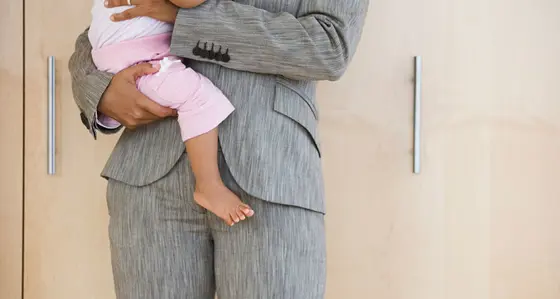
Dancing with the code
5 min read 17 March 2025
I’m most myself at home - there are ways that I act around friends and family that would hinder me at work and prevent me from being taken seriously. Although I am authentic at work, I do have to change to fit into the environment.
Fear of rejection
I realised there was a code at school – playing rugby and being a closeted gay – not knowing then that I was non-binary. I joined a gay team in my late teens and there was another code. The G was there but not the T, so when I realised there was something else, I came out a second time.
I grew up petrified of rejection - by family, by society - I thought I’d be thrown off the rugby team, put out on the streets, and never have a career. Although these threats never materialised (and knowing now that my parents would never exile me) it has still impacted me. I’ve struggled with negative self-thoughts, anxiety, and depression since my mid-teens.
When I was younger, I denied myself the permission to be me. I hid my mannerisms, flamboyancy and feelings - the only exception to this was on the dancefloor. I got used to not asking for help, which carries on, especially at the beginning at Baringa. It's a fear of being seen as weak, being judged as not worthy and not being taken seriously. This fear manifests as holding back thoughts and opinions, transforming myself to fit, people pleasing and being reluctant to say no.
Navigating the matrix
To me the code means a prescription for succeeding at work. To progress in your career, you need to fit within criteria that’s been formed throughout history. However, it differs by person, and I see the code through a matrix.
Things like age, gender and LGBTQ can affect how much people prescribe to the code, and how much they expect others to. Having to navigate this matrix determines how comfortable I am and how much I can be myself - it is an energy intensive activity.
Overcompensating for who I am
Even before my first day at Baringa I suffered with imposter syndrome as it is the most corporate company I have worked at. I knew it was full of experts, and I doubted my expertise. Noticing this before joining, I etched into a pebble: “you belong here”.
I thought it was going to be very sterile and transactional – but it wasn’t as bad as I feared. You’re assigned a buddy on joining. My buddy was great, and I’m grateful for them, but I’d have appreciated someone LGBTQ – someone with a shared experience to say: “You’re ok to be yourself here…”
I clutched the pebble hard in my first few months at Baringa. I had the belief that I did not have the expertise for the role (with experience proving otherwise) and there was no way I’d pass probation. Adding this to the fear of being judged, I felt I had to overcompensate for who I am.
I adapted too much of myself to the code to fit in - to the detriment of my mental health.
“Fitting in” to “be more you”
The people team and my line managers at Baringa have been amazing and actively promote “be more you” at work - I wish I’d approached them and got help earlier. Baringa also has great benefits, and I’ve been fortunate to access therapy which, along with other self-work, has helped me immensely.
It took me a while and, depending on the matrix, I found myself getting more comfortable. After 9 months at Baringa I wrote on the back of the pebble: “be more you”.
Learning to dance with the code
It’s taken time, trial, and errors throughout my professional career to try and comply with the code. Resisting the code in the past has stunted my professional growth and impacted my financial security. The mental and physical energy of either resisting the code (or morphing who I am to fit it) has affected me, and my performance, which impacts how far you go in an organisation.
I feel now that I am in a place where I’m comfortable and meet the code on my own terms. I dance with the code - in my own way.
Where the code is most hard-wired
The biggest change needs to come from the industry – but, with Baringa being a management consultancy that’s both tricky and risky.
The code is changing as new generations enter the workplace. Yet our end-clients are corporates, and this results in a “code pull”. They attract people that stick to the code and our management consultants sensibly match their clients.
Is there a way to influence clients? Is there a way to soften the code at the top corporations where it’s most hard-wired, to create a trickle-down?
I’ve been at Baringa nearly two years and I still adapt my persona in the workplace. However, I am more adept to navigating the matrix and I clutch my pebble less. I’m still on a path to “be more you” and this takes time – just like learning how to dance. What’s positive is that I feel like I belong here.
More from this series

Supporting different versions of our authentic selves
Parris Lougheed, Executive Assistant, describes her journey as a Black woman discovering the code and finding support throughout Baringa. She believes that rewriting the code must be authentic and allow us to bring our everchanging true selves to work. Parris recently became a parent, and this means discovering a new code, and a new version of her working self.
Read more
Wonder Woman doesn’t exist…
Olena Isaieva is happy to admit she is no Wonder Woman. It’s not possible to do everything by yourself, and you shouldn’t try. Our Director in Commodities and Energy Trading in Switzerland credits a strong support system with the success and fulfilment she enjoys, both in her personal life and career. Read on to find out how she is using her own experiences as a woman in male-dominated environments, to support and encourage others at Baringa.
Read more
Freeing the chameleon
From the covert world of law enforcement and intelligence to time in consulting firms big and small, James Hampshire has done his fair share of shape-shifting to fit in. However, following a revelatory diagnosis, James explains how it was time to let go of the mask and reveal his true self.
Read more
Listening, learning and reflecting together
Sagar Shah, expert in Financial Services, is a first-generation immigrant. Read on to discover how he has challenged the code in various aspects throughout his life and how he feels about bringing his true self to work at Baringa.
Read moreRead our Personal Journeys blog

Diversity and inclusion: personal journeys
A series of reflective pieces where brilliant people from within Baringa will share their journeys as individuals or members of our company and community.
Read more


Why I am talking to white people about race
Introducing Jennifer Cook, an expert in organisational and operational transformation and a leader in Baringa’s Ethnic Diversity Network
Read moreIs digital and AI delivering what your business needs?
Digital and AI can solve your toughest challenges and elevate your business performance. But success isn’t always straightforward. Where can you unlock opportunity? And what does it take to set the foundation for lasting success?